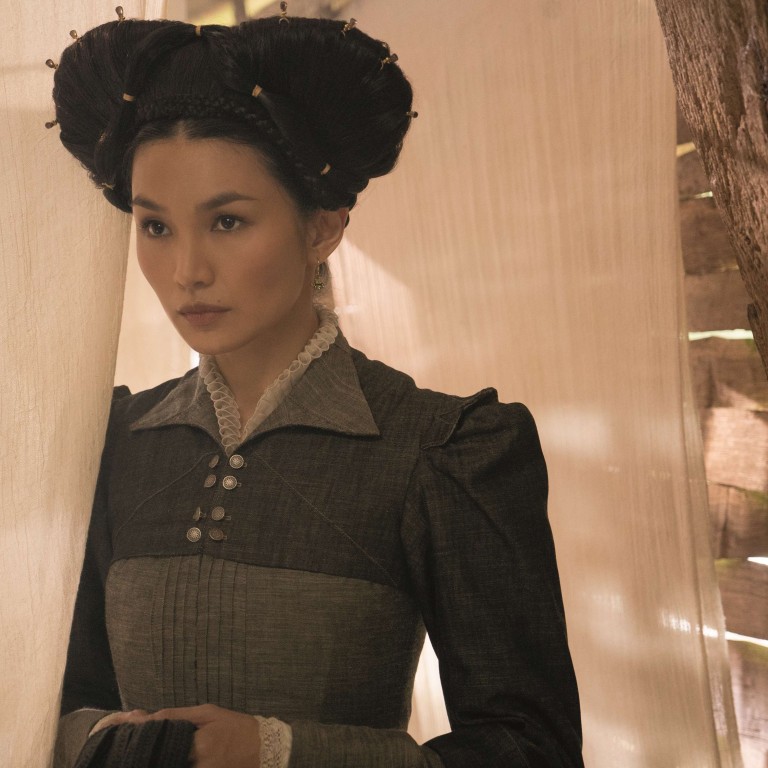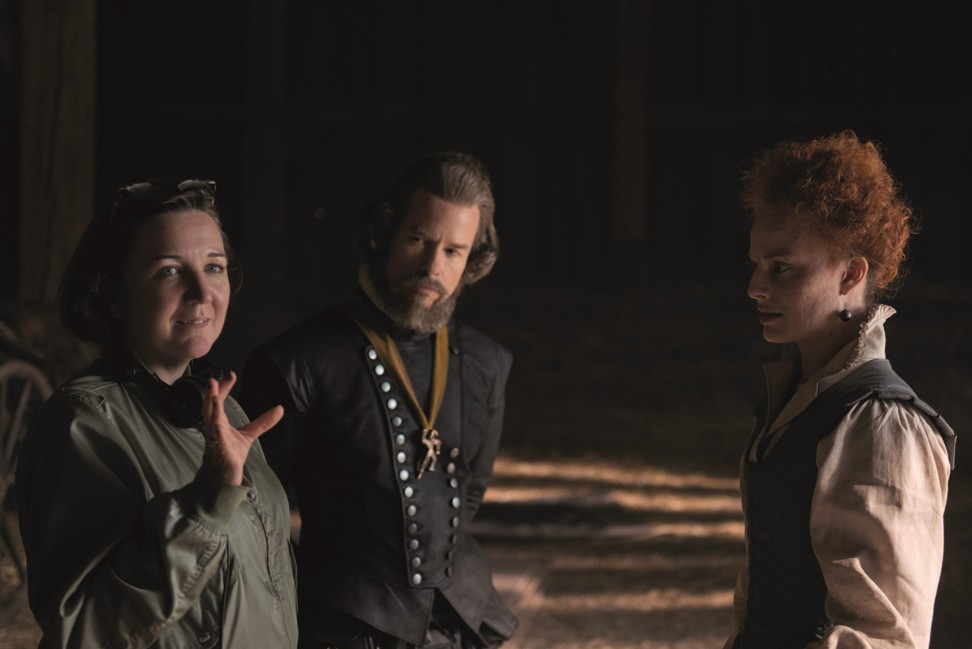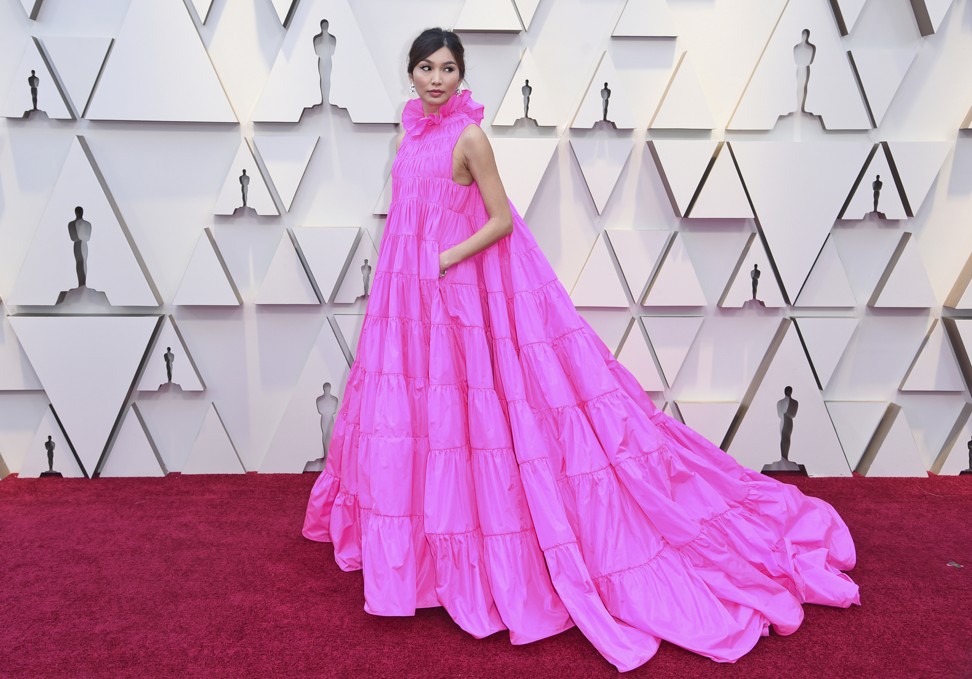Opinion / Is colourblind casting, such as Gemma Chan in drama ‘Mary Queen of Scots’, the way of the future?

Search on Google for the name of American actress Scarlett Johansson and you will not even need to scroll down before you hit one article or another referring to the controversial casting of her as Major, a cybernetically enhanced soldier, in the film adaptation of one of the world’s most-loved Japanese anime series, Ghost in a Shell.
The complaints about the “whitewashing” of this Asian role were so rampant that they were said to be one of the reasons why the 2017 live action release was a big box-office disappointment.
We can all accept that whitewashing has been pretty widespread in Hollywood, particularly during the Golden age of the California-based film studios – from the silent era up until the 1960s.

We saw English-born Elizabeth Taylor cast as an Egyptian ruler in the title role of 1963’s Cleopatra, American John Wayne as Genghis Khan in 1956’s The Conqueror, and Russian actor Yul Brynner as the King of Siam in another 1956 film, The King and I.
If John Wayne can play Genghis Khan, I can play Bess of Hardwick
Yet this practice continued into the 2000s with Angelina Jolie being cast in not one but two roles. The first saw her play Mariane Pearl, someone of mixed race, in the 2007 drama A Mighty Heart. In the second, she played the part of Fox, in 2008’s action thriller Wanted – based on the comic book series of the same name – a character originally shown as being African America.
There was some criticism within the African-American community about Jolie’s casting as Pearl, but Pearl herself, who chose Jolie for the part, defended the choice.

One of the most notorious cases of whitewashing involved the 2009 live-action remake of Dragon Ball Z, a hugely popular anime series throughout Asia. The casting of Canadian actor Justin Chadwin sparked outrage online and the anger was reflected in the film’s box office takings.
Johnny Depp’s casting as the Native American character Tonto in 2013’s misfiring action film, The Lone Ranger was regarded as racist to many, but it was the choice of Emma Stone to play Alison Ng, a character with Hawaiian and Asian heritage in 2015’s romantic comedy, Aloha, that sparked considerable online criticism.
It led the director, Cameron Crowe, to apologise “to all who felt this was an odd or misguided casting choice”.
A new page?

However, recent race and gender sentimentalities have taken a turn.
Josie Rourke’s 2018 period drama, Mary Queen of Scots saw the controversial casting of London-born Gemma Chan – whose parents are both originally from China – as Bess of Hardwick, an English-born-and-bred lady of the court during the Elizabethan era.
The director did not stop there though, and also cast black English actor Adrian Lester – the son of Jamaican immigrants – to play Elizabeth’s Lord Thomas Randolph, an ambassador to the Scottish court, while the part of David Rizzio, an Italian-born courtier who served as private secretary and was a confidante to Mary, was brought to life by Puerto Rico-born actor Ismael Cruz Córdova.

The thespian and first-time director said that the move was intentional. “I was really clear, I would not direct an all-white period drama,” Rourke said.
“Adrian, who plays Lord Randolph, grew up 40 miles from the birthplace of William Shakespeare; he is one of our eminent Shakespearean actors. I needed to cast an ambassador who could move between the two courts and help this make sense. I don’t understand why you wouldn’t cast him.”
Colourblind casting
While the setting and context remained unchanged in Mary, Queen of Scots, it seems Rourke made her cast selection with the best of intentions. So is this the way of the future?
Chan, who has appeared in the hit 2018 film Crazy Rich Asians and this year’s Captain Marvel, received a lot of criticism over her portrayal of an Englishwoman from Derbyshire.
Yet Chan’s eloquent response to the comments came during an interview, when she said: “If John Wayne can play Genghis Khan, I can play Bess of Hardwick.”

If we look at this from the director’s point of view, “colourblind casting” – the practice of casting actors without considering their ethnicity, skin colour, body shape, sex or gender – has been commonplace for a long time.
Many Shakespearean productions have famously changed the context of the setting of the plays, but the scripts and characters remain intact, allowing for diversity while the storytelling remains unchanged.
NBC’s 2009 television series Kings, attempted just that with an interpretation of the biblical story of King David in a modern-day setting of corporate America.
While it seems culturally satisfying to see the tables finally turned, let’s not forget that the jury is still out on whether the comedy, White Chicks, starring the black Wayan brothers, Shawn and Marlon, was offensive.
The 2004 film saw the brothers famously putting on whiteface to change their characters into two white women to protect them against a kidnapping plot. It has a Metacritic rating of 41 out of a 100, based on aggregated reviews, suggesting mixed or average reviews. But it grossed US$19.7 million in its opening US weekend and finished with US$70.8 million at the box office in the US alone.
However, the announcement of a sequel stirred up a lot of comments involving racism and many people want to leave such things firmly in the past.
We venture into the realm of artistic expression when it comes to this sort of casting and storytelling, and I’m going to say we’ll just have to judge things on a case-by-case basis.
At the end of the day, the only question that needs to be answered is whether the audience was entertained.
Which would you rather have? The casting of a Scandinavian native to play a traditionally Caucasian role of an American hero, or cast someone who is of a different ethnicity, but American born?
The point of colourblind casting is that this should open up roles for minorities and we’re all for that.
Wouldn’t it be great if one day, there was such a level playing field that no one would mind Johansson being cast as the lead in Ghost in a Shell because Chan is going to be next Supergirl?

Hollywood has been accused of ‘whitewashing’ – or casting Caucasian actors for people of colour roles – for years, but are the tables turning finally?